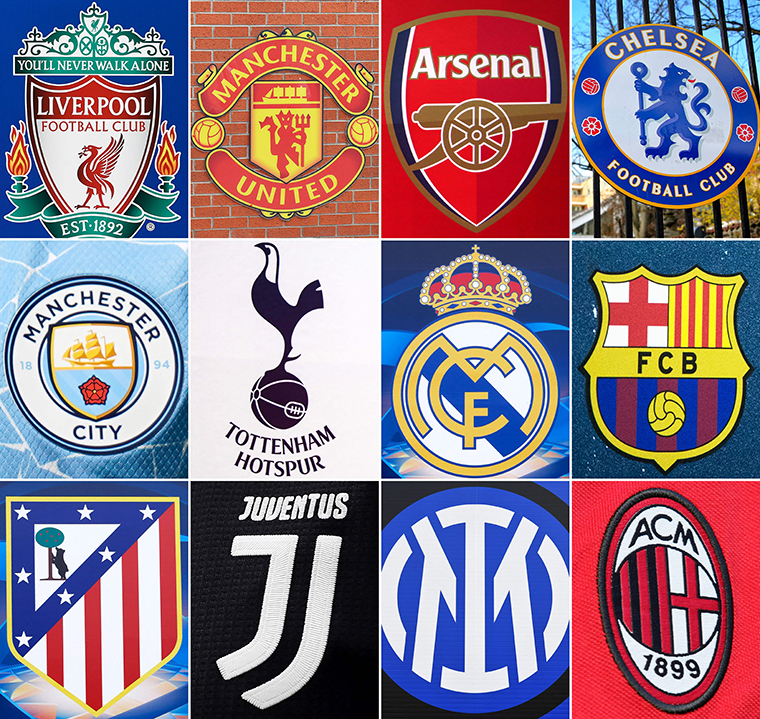
Introduction
Hello, everyone! Welcome back to a final rendition of my EPL-related Passion Blog series. Today, I will be discussing the formation of the ESL and its subsequent demise. Football almost died this week, but due to universal condemnation by fans across the world, most of the clubs involved in this sham project pulled out. Let’s get into the gritty details…
Timeline

On Sunday, April 18th, my heart sank. 12 of the top clubs in Europe announced that they would be forming a breakaway league called the European Soccer League (ESL). It would be an additional midweek competition consisting of 20 teams, 15 founding members and 5 other clubs. The founding teams would not face the typical threat of relegation while the other 5 teams could change annually, with their qualification based on the prior season’s achievements.
The ESL would have a men’s competition and a women’s competition (you can guess which one was more hyped). For the men, the founding members would each receive $400 million initially. Annually, these teams would split billions of dollars in television revenue and league sponsorships. The initial funding of the ESL would be backed by U.S. investment banking company J.P. Morgan Chase.
In response to formation of this illegitimate league, the Union of European Football Associations (UEFA) threatened clubs with massive sanctions including banning clubs from their domestic leagues and European competitions and barring players of these clubs from competing for their national sides in the 2020 Euros and 2022 World Cup. FIFA released a statement condemning the ESL, but stated that they did not have an authority to punish participating clubs.
Political leaders such as Boris Johnson and Emmanuel Macron also voiced their displeasure at the concept of a Super League. Funnily enough, Brexit actually may have successfully destroyed the ESL as it gave the British government more power in potentially sanctioning the 6 English sides who joined the ESL. For instance, Johnson considered not providing work permits required for international player transfers for English clubs in the ESL and revoking existing work permits.
On Tuesday, April 23th, Chelsea became the first English club to announce their withdrawal from the ESL and were quickly followed by Manchester City. The other 4 English clubs have also withdrawn as have Atletico Madrid, AC Milan, and Inter Milan.
The remaining clubs, Juventus, Barcelona, and Real Madrid, have not seemed to back down. The ESL’s chairman, Florentino Perez (who is also Real Madrid’s chairman) , seems to want to continue with the Super League plans and has stated that the 12 clubs signed a contract and will hold them to it.
Analysis
The ESL would be detrimental to football in many ways. Unlike American sports, the domestic league pyramids are based on a system of promotion and relegation. It is common for NFL and NBA teams to “tank” (finish as one of the bottom teams to get a higher draft pick), but in soccer, tanking would result in being demoted to a lower division.
Also, in Europe, the Champions League and Europa League, the two European competitions, are qualification-based. In other words, teams have to finish near the top of their domestic leagues to qualify for them. The ESL completely disregards this system by ensuring that the founding clubs would never be relegated and would stay in the league based on name recognition and branding power alone.
A Super League would also be a disservice to local fans. Presumably, ESL games would be played across the globe in locations with the biggest stadiums and most marketability. In domestic leagues and even European competitions, home fixtures guarantee stadiums being filled primarily by local fans. Even in away fixtures, teams are allocated a small portion of tickets for local fans. The ESL would completely disregard club regional identity and loyalty by filling stadiums based on fans who can afford the most expensive tickets rather than with lifelong supporters.
The players of the ESL clubs would be harmed by the creation of a Super League as well. Players of top clubs already play a minimum of 1-2 games per week. Sometimes, they might even play 3 within a 1-week period. And in the summer, these players do not rest as they compete for their national teams. In essence, these players’ schedules are already way too congested in terms of competitive matches, and the ESL would just add more games on top of that. Players would be at greater risk of fatigue and serious injury with the addition of the ESL as a midweek competition.
Conclusion
I am glad the ESL collapsed. It is completely antithetical to the nature of the Beautiful Game. Football is a humble sport that derives its popularity from its fans. Not superclubs. Not billionaire owners. The fans. Anything seeking to destroy this fundamental relationship between fans and clubs should not be accepted.
I cannot possibly cover every ESL-related development in a single blogpost, so I suggest doing some further reading if I piqued your interest. Here are some articles from the NY Times that I HIGHLY recommend:
Bonus Content
NSFW Warning (Language)
Above is a video of Chelsea fan’s protesting outside Stamford Bridge (Chelsea’s home stadium) before their game against Brighton. Once they received the news that Chelsea quit the ESL, you can see that they change their reaction instantly!
